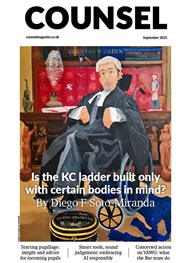*/
Youth Court Guide (5th edition)
ISBN: 978 184766 982 7
October 2012
Publisher: Bloomsbury
Price: £70
Youth Court hearings can be much more complicated than is often assumed. Leaving aside for a moment the fact that you are dealing with some of the most vulnerable people in society – children – and all the added complications that come with that, there are differences in procedure, court composition and sentencing to contend with. How convenient then to have these differences set out in one easy to read handbook.
The Youth Court Guide is not an academic text, and nor does it pretend to be. What the Youth Court Guide does do, and does well, is provide a detailed narrative to guide the reader chronologically through each stage of the youth justice system. The two authors simply tell you what you can expect to happen at each stage of the process, from before charge (Ch 1), through the hearing itself (Ch 6) and up to appeals (Ch 16), demystifying the whole experience. The relevant legislative framework is referenced, but not in such a way as to interfere with the story-telling, making it easy to digest but not overly simplistic.
Each chapter is broken down into subsections which have been well headed, making the book easy to navigate: each topic is dealt with succinctly and discreetly, avoiding the need to read a whole chapter to find the answer to a specific point. It is helpful that Ch 9 on youth rehabilitation orders is broken down in such a way that all of the requirements of such an order are set out under their own heading. The appendices are a welcome addition, particularly the sentencing cases compendium and the sentencing guidelines applicable to youths.
Whether you are about to start undertaking Youth Court work, or have done so in the past and just need the occasional reminder about particular procedures, the Youth Court Guide is a good point of reference.
Hannah Kinch is a barrister at 23 Essex St Chambers. She is also chair of the Young Barristers’ Committee.
The Youth Court Guide is not an academic text, and nor does it pretend to be. What the Youth Court Guide does do, and does well, is provide a detailed narrative to guide the reader chronologically through each stage of the youth justice system. The two authors simply tell you what you can expect to happen at each stage of the process, from before charge (Ch 1), through the hearing itself (Ch 6) and up to appeals (Ch 16), demystifying the whole experience. The relevant legislative framework is referenced, but not in such a way as to interfere with the story-telling, making it easy to digest but not overly simplistic.
Each chapter is broken down into subsections which have been well headed, making the book easy to navigate: each topic is dealt with succinctly and discreetly, avoiding the need to read a whole chapter to find the answer to a specific point. It is helpful that Ch 9 on youth rehabilitation orders is broken down in such a way that all of the requirements of such an order are set out under their own heading. The appendices are a welcome addition, particularly the sentencing cases compendium and the sentencing guidelines applicable to youths.
Whether you are about to start undertaking Youth Court work, or have done so in the past and just need the occasional reminder about particular procedures, the Youth Court Guide is a good point of reference.
Hannah Kinch is a barrister at 23 Essex St Chambers. She is also chair of the Young Barristers’ Committee.
Youth Court Guide (5th edition)
ISBN: 978 184766 982 7
October 2012
Publisher: Bloomsbury
Price: £70
Youth Court hearings can be much more complicated than is often assumed. Leaving aside for a moment the fact that you are dealing with some of the most vulnerable people in society – children – and all the added complications that come with that, there are differences in procedure, court composition and sentencing to contend with. How convenient then to have these differences set out in one easy to read handbook.


Chair of the Bar sets out a busy calendar for the rest of the year
By Louise Crush of Westgate Wealth Management
Examined by Marie Law, Director of Toxicology at AlphaBiolabs
Time is precious for barristers. Every moment spent chasing paperwork, organising diaries, or managing admin is time taken away from what matters most: preparation, advocacy and your clients. That’s where Eden Assistants step in
AlphaBiolabs has announced its latest Giving Back donation to RAY Ceredigion, a grassroots West Wales charity that provides play, learning and community opportunities for families across Ceredigion County
Rachel Davenport, Co-founder and Director at AlphaBiolabs, outlines why barristers, solicitors, judges, social workers and local authorities across the UK trust AlphaBiolabs for court-admissible testing
Despite increased awareness, why are AI hallucinations continuing to infiltrate court cases at an alarming rate? Matthew Lee investigates
Come in with your eyes open, but don’t let fear cloud the prospect. A view from practice by John Dove
Looking to develop a specialist practice? Mariya Peykova discusses the benefits of secondments and her placement at the Information Commissioner’s Office
Anon Academic explains why he’s leaving the world of English literature for the Bar – after all, the two are not as far apart as they may first seem...
Review by Stephen Cragg KC